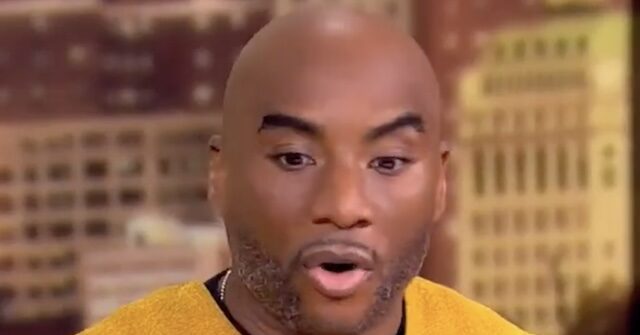In a recent episode of ABC’s “The View,” radio host Charlamagne tha God engaged in a heated discussion with co-host Whoopi Goldberg centered on the topic of political allegiance, particularly regarding President Biden’s decision to pardon his son, Hunter Biden. Charlamagne expressed his belief that many Democrats are upset with Biden because they feel he does not represent the party’s values. He argued that this perception indicates a disconnect between the Democratic leadership and its base, asserting that the party often occupies a false moral high ground. He used the metaphor of being a Dallas Cowboys fan—to illustrate how partisanship can lead to delusional thinking—suggesting that identifying too closely with a political party can hinder one’s ability to assess situations objectively.
Goldberg countered Charlamagne’s assertions by stating that Democrats are not a monolith; rather, they are diverse with varying opinions. She emphasized her willingness to criticize the Democratic party when appropriate, claiming that she frequently does so on the show. However, Charlamagne pressed further, questioning her inability to acknowledge when Biden is in the wrong. This contentious exchange highlights a key issue in contemporary political discourse: the challenge of objective criticism within partisan frameworks. Charlamagne’s insistence on objectivity aims to encourage individuals to hold their party leaders accountable regardless of their political affiliations.
As the discussion deepened, Goldberg maintained her position, insisting that she does not believe Biden’s actions regarding Hunter Biden warrant condemnation. This response prompted Charlamagne to label her refusal to criticize the president as “ridiculous,” reinforcing a common frustration among viewers and commentators alike regarding blind loyalty to political figures. The dialogue exhibited a profound divide not just between the hosts but also among the audience as they grapple with their expectations of political leaders and party loyalty.
The exchange serves as a microcosm of broader national conversations regarding accountability within political parties. While Charlamagne’s perspective advocates for transparency and responsibility among Democrats, Goldberg’s defense of Biden illustrates a reluctance—particularly among some party loyalists—to confront uncomfortable truths about their representatives. This tension illustrates a critical challenge for political discourse: how can individuals maintain allegiance to their party while fostering an environment where criticism and accountability are welcomed?
Furthermore, the conversation reveals the complexity of discussing personal beliefs in the face of party ideology. For many, the fear of betraying party principles can create a hesitance to voice dissenting opinions. Charlamagne’s argument that political parties should not be treated like sports teams resonates with many who feel disillusioned by partisan politics. His observations underscore the necessity for individuals to critically engage with their party’s actions and decisions, rather than simply rallying around a logo or a leader.
In conclusion, the exchange between Charlamagne tha God and Whoopi Goldberg highlights a transformative moment in political commentary. It encapsulates the struggle to find honest discourse in an environment often marred by loyalty and tribalism. As political narratives unfold, it becomes increasingly vital for both pundits and the public to seek a balanced perspective that allows for the criticism of leaders regardless of party affiliation. The future of political dialogue relies heavily on the ability to separate personal convictions from the often contentious realities of partisan politics and recognize when leaders—regardless of their party—are not living up to their responsibilities. The discussion emphasizes the importance of individual accountability in fostering a responsive and responsible political climate.

